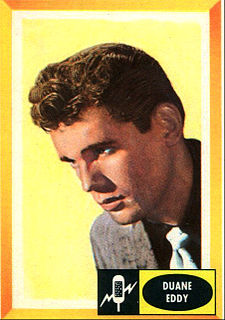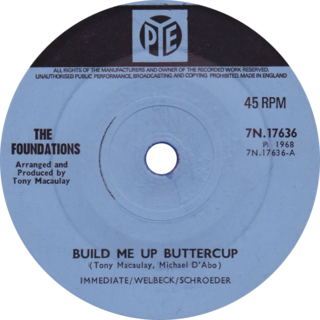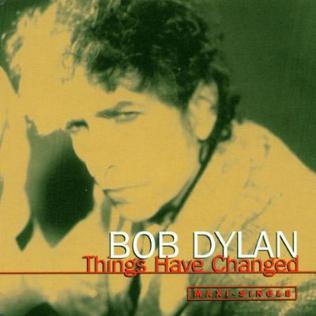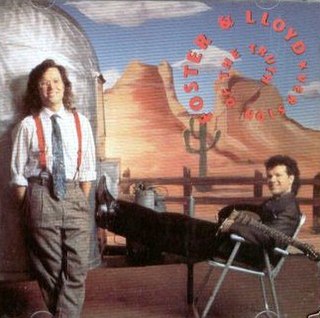Related Research Articles

Duane Eddy is an American guitarist. In the late 1950s and early 1960s, he had a string of hit records produced by Lee Hazlewood, which were noted for their characteristically "twangy" sound, including "Rebel-'Rouser", "Peter Gunn", and "Because They're Young". He had sold 12 million records by 1963.

"Layla" is a song written by Eric Clapton and Jim Gordon, originally released by their blues rock band Derek and the Dominos, as the thirteenth track from their only studio album, Layla and Other Assorted Love Songs. Its contrasting movements were reportedly composed separately by Clapton and Gordon. The piano part has also been controversially credited to Rita Coolidge, Gordon's girlfriend at the time.

Hank Brian Marvin is an English multi-instrumentalist, vocalist and songwriter. He is best known as the lead guitarist for the Shadows, a group which primarily performed instrumentals and was the backing band for Cliff Richard, and subsequently for Marvin, Welch & Farrar.

Elton John is the second studio album by English singer-songwriter Elton John, released on 10 April 1970 by DJM Records. It was released by Uni Records as John's debut album in the United States; many people there assumed it was his first album, as Empty Sky was not released in that country until 1975. Elton John includes his breakthrough single "Your Song", and helped to establish his career during what was considered the "singer-songwriter" era of popular music. In the US, it was certified gold in February 1971 by the Recording Industry Association of America (RIAA). In the same year, it was nominated for the Grammy Award for Album of the Year.
The Foundations were a British soul band, active from 1967 to 1970. The group was made up of West Indians, White British, and a Sri Lankan. Their 1967 debut single "Baby Now That I've Found You" reached number one in the UK and Canada, and number eleven in the US, while their 1968 single "Build Me Up Buttercup" reached number two in the UK and number three on the US Billboard Hot 100. The group was the first multi-racial group to have a number one hit in the UK in the 1960s.

"Go Your Own Way" is a song by the British-American rock band Fleetwood Mac from their eleventh studio album Rumours (1977). It was released as the album's first single in December 1976 on both sides of the Atlantic. Written and sung by Lindsey Buckingham, it became the band's first top-ten hit in the United States. "Go Your Own Way" has been well received by music critics and was ranked number 120 by Rolling Stone magazine on their list of greatest rock songs of all time.
Tony Macaulay is an English author, composer for musical theatre, and songwriter. He has won the British Academy of Songwriters, Composers and Authors Award twice as 'Songwriter of the Year'. He is a nine time Ivor Novello Awards winning songwriter. In 2007, he became the only British person to win the Edwin Forrest Award for outstanding contribution to the American theatre.

The Paper Dolls were a late 1960s British female vocal trio from Northampton, comprising lead vocalist Susie 'Tiger' Mathis, Pauline 'Spyder' Bennett and Sue 'Copper' Marshall. They were one of the few British girl groups of the late sixties.

"Follow You Follow Me" is a love song written and recorded by English rock band Genesis. It was released in February 1978 as the first single from their ninth studio album, ...And Then There Were Three... (1978). The music was composed by the band, and the lyrics were written by bassist and guitarist Mike Rutherford.

"Build Me Up Buttercup" is a song written by Mike d'Abo and Tony Macaulay, and released by the Foundations in 1968 with Colin Young singing lead vocals. Young had replaced Clem Curtis during 1968 and this was the first Foundations hit on which he sang.

"Things Have Changed" is a song from the film Wonder Boys, written and performed by Bob Dylan and released as a single on May 1, 2000, that won both the Academy Award for Best Original Song and the Golden Globe Award for Best Original Song.

Heat is the sixth album by Australian rock singer Jimmy Barnes. It reached number 2 on the ARIA album charts in 1993, and features the singles "Sweat It Out", "Stand Up", "Right By Your Side", and his biggest solo hit, "Stone Cold", a never-used Cold Chisel song written by Don Walker in the early 1980s.

GTO Records was a British record label which released many hits during the 1970s. It ran from 1974 to 1981 and mainly concentrated on pop music and disco. The acronym represented the Gem Toby Organization.

Version of the Truth is the third album released the American country music duo Foster & Lloyd. Despite it charting higher (#40) than their previous album, Faster & Llouder (#44), Its singles were less successful. The first, "Is It Love" peaked at #43 on the Billboard Hot Country Songs chart while the second "Can't Have Nothin'" reached #38, their most successful single since 1988's "Fair Shake". Jeff Hanna, a founding member of The Nitty Gritty Dirt Band makes a guest appearance singing harmony on the title track. Other guest musicians include Bernie Leadon from Eagles and Duane Eddy, among others.
"Loving You" is a song written by Jerry Leiber and Mike Stoller and performed by Elvis Presley featuring The Jordanaires. It reached No. 15 on the U.S. country chart, #20 on the U.S. pop chart, and #24 on the UK Singles Chart in 1957. It was featured on his 1957 album Loving You. It was featured in Presley's 1957 movie Loving You.
"Cannonball" is a song written by Duane Eddy and Lee Hazlewood and performed by Eddy. The song reached #15 on the Billboard Hot 100, #22 on the R&B chart, and #2 on the UK Singles Chart in 1958. The song appeared on his 1958 album, Have 'Twangy' Guitar Will Travel.
"Ramrod" is a song written by Al Casey and performed by Duane Eddy. The song reached #17 on the R&B chart and #27 on the Billboard Hot 100 in 1958. The song appeared on his 1958 album, Have 'Twangy' Guitar Will Travel.
"The Ballad of Paladin" is a song written by Johnny Western, Richard Boone, and Sam Rolfe and performed by Duane Eddy. The song reached #10 on the UK Singles Chart and #33 on the Billboard Hot 100 in 1962. Members of the Western Writers of America chose it as one of the Top 100 Western songs of all time. Eddy's flip side was the theme to The Wild Westerners.
"(Dance with the) Guitar Man" is a song written by Duane Eddy and Lee Hazlewood and performed by Eddy, featuring vocals by The Blossoms. The song reached #4 on the UK Singles Chart, #12 on the Billboard Hot 100, and #3 in Norway in 1962. The song appeared on his 1962 album, Dance with the Guitar Man . It was recorded at the RCA Nashville Sound Studio in Nashville, Tennessee.

Already is a 1971 compilation album from the British pop band Edison Lighthouse. It features three singles by the band, "Love Grows " and "It's Up to You Petula". Both songs became chart hits in the UK, US, Canada and New Zealand. The third, "What's Happening", became a regional hit in Australia.
References
- ↑ Duane Eddy, "Play Me Like You Play Your Guitar" Chart Positions Retrieved April 29, 2014
- ↑ Kent, David (1993). Australian Chart Book 1970–1992 (illustrated ed.). St Ives, N.S.W.: Australian Chart Book. p. 100. ISBN 0-646-11917-6.
- ↑ Duane Eddy, "Play Me Like You Play Your Guitar" single release Retrieved April 29, 2014
| This 1970s single–related article is a stub. You can help Wikipedia by expanding it. |